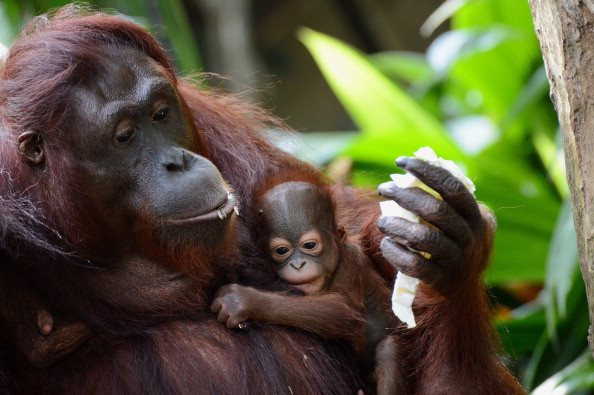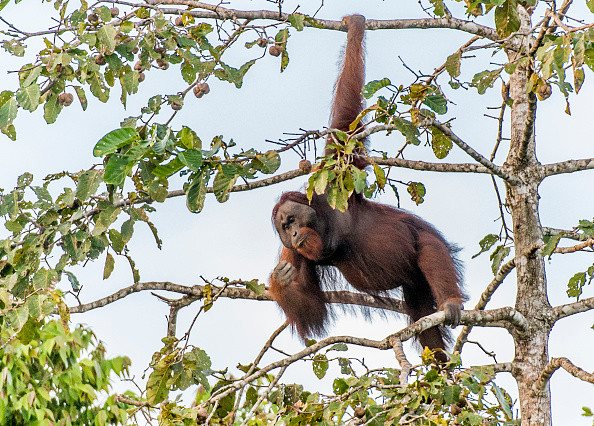Bornean Orangutans now listed as 'critically endangered' on IUCN red list
Habitat loss, forest fires and illegal hunting have driven the species to the brink of extinction.

The Bornean Orangutan is now critically endangered, according to the IUCN red list of threatened species. Illegal hunting and habitat loss and degradation are the main causes of a dramatic decline in the number of animals over the last decades.
In the wild, Bornean Orangutans live in forest lowlands on the island of Borneo. The largest arboreal mammals on Earth, their diet consists mainly of fruits, plants and insects.
The total number of Orangutans is not precisely known but recent estimates suggest between 55,000 and 104,700 Bornean Orangutans inhabit the island.
It is also believed that roughly 2,000–3,000 orangutans were killed every year in Indonesian Borneo during the past four decades – leading to a decline of more than 50% of the original population in just 40 years.
If this unsustainable trend remains unchanged, a further 22% decline is projected to occur between 2010 and 2025, potentially leading up to the extinction of the species in the years to come.
Habitat loss and hunting
The last assessment of the Bornean Orangutans' conservation status had been established eight years ago, in 2008, when the large primate was listed as 'endangered' by the IUCN.
However, large-scale habitat loss and unrestricted hunting have had a tragic impact on its capacity to survive, prompting the experts to recently review this assessment as 'critically endangered'. This means that the species is considered to be facing an extremely high risk of extinction in the wild.

Habitat loss and degradation is probably the most important threat to Orangutans. During the period 1973–2010, 39% of Bornean forests where they live were lost, and it is estimated that a further 37% of suitable orangutan habitat will be converted to plantations by 2025. Additionally, selective logging and fires have caused a lot of damage. More than 20,000 km² of forest were lost to fires in 2015, resulting in hundreds of additional orangutan deaths.
Illegal hunting is the other major cause of orangutans' population decline. Recent revealed that several thousand individuals are killed every year for meat consumption, as a way to mitigate conflict, or for other reasons. The problem is Bornean Orangutans are very slow breeders and produce on average one offspring every six to eight years. This makes the animal particularly sensitive to hunting pressure.

Other threats include climate change and a lack of awareness of local populations. A recent study suggested that 27% of the people in the Kalimantan region of Borneo did not know that orangutans are protected by law.
It is therefore necessary to come up with better information campaigns to encourage these populations to support the principles of environmental conservation if successful orangutan conservation is going to take place.
Effective conservation strategies will also have to address the fact that even though the orangutan is protected by law, a lot of Borneo's forests are not. "Innovative mechanisms to ensure the long-term survival of Bornean Orangutans outside protected forests are urgently needed", the IUCN concludes.
© Copyright IBTimes 2025. All rights reserved.






















